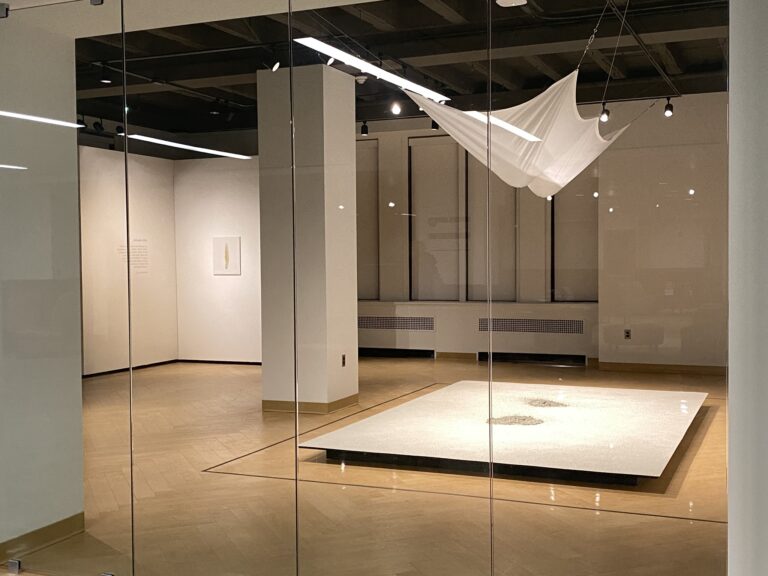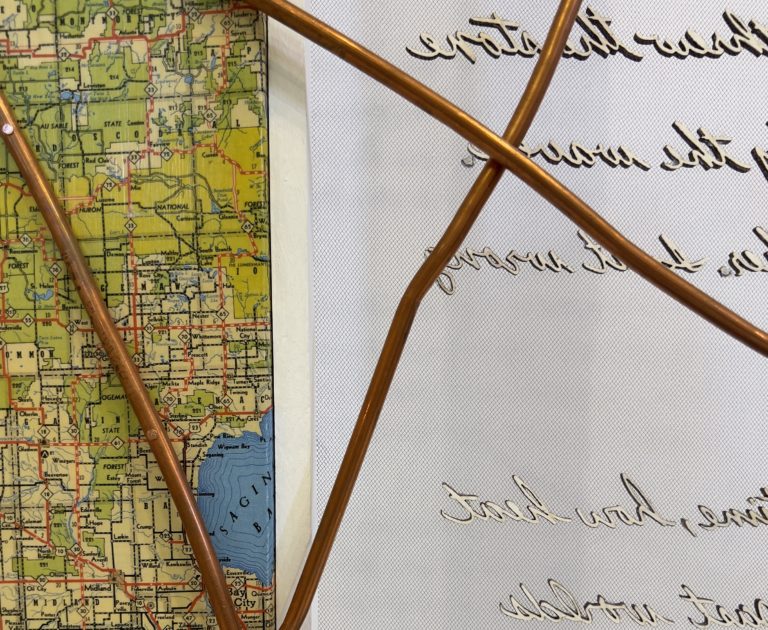MSU Union Art Gallery
April 5 – July 19, 2024
Reception Friday, April 19, 5-7pm
The Quilt Index’s Black Diaspora Quilt History Project is hosting an exhibition titled Afrofuturism & Quilts in the Union Gallery at Michigan State University (MSU) from April-July 2024. In this exhibition quiltmakers and quilt scholars explore embodied and theoretical connections between Afrofuturism and quilt making. Each piece in the exhibition explores aspects of included quiltmakers’ identity and experiences, as well as their beliefs, hopes, and imaginings of a liberated Afrofuture. The work of local and national quilt artists will be showcased. Artists include: April Shipp, Dr. Elka Stevens, Janda Lipker & Rebecca Lipker, Carole Lyles Shaw, Dr. Diana Baird N’Diaye, Chiquita Whitfield, & Dr. Liv Furman. This exhibition is curated by Dr. Liv Furman, with special thanks to Dr. Julian Chambliss.
This exhibition builds from the Afrofuturism & Quilts virtual panel conversation, planned and moderated by Dr. Julian Chambliss and Dr. Liv Furman, on October 5th, 2023. This virtual panel event explored theoretical and experiential context regarding themes of Afrofuturism, quilt making, and the utility and legacies of Black art/craft. The panelists for this event included: Ytasha Womack, John Jennings, Dr. Elka Stevens, & Deimosa Webber-Bey.
To learn more about this project, please visit their website using the button below:
The Afrofuturism & Quilts exhibition is made possible through the generous support of sponsors including the MSU Museum, the Quilt Index’s Black Diaspora Quilt History Project, MSU’s Department of African American & African Studies, MSU’s Department of Art, Art History and Design, Michigan Traditional Arts Program, and a Creating Inclusive Excellence Grant from the MSU Office for Institutional Diversity and Inclusion. Notably, the Quilt Index’s Black Diaspora Quilt History Project, a project of MSU’s Matrix: Center for Digital Humanities and Social Sciences, is funded by the National Endowment for the Humanities, underscoring the significance of this initiative in preserving and celebrating Black quilting traditions.



